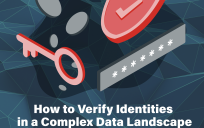![]()
I want us to continue to think about this problem: There are data science graduate degree programs popping up all over the country, but relatively few that are focusing on the problems of the public sector. Two exceptions are the MS in Computational Analysis and Public Policy at the University of Chicago and the MS in Applied Urban Science and Informatics at NYU. (I’d like to hear of more if readers are aware of them.) These two programs are not “pure” data science in that they attempt to provide training in both computer science and training about how government works (or should work.) Students graduate with a range of skills and a desire to put them to work in government.
For those of us who have been doing data work in the public sector, there’s always the tension when hiring an analyst between choosing the programmer/technologist or the person experienced in how the public sector works and training them on what they don’t know. However, with these type of programs, we don’t have to choose. While hybrid programs won’t produce the next urban Chief Data Officer right off the bat, they will produce individuals who can step into those environments and relatively soon be making major contributions.
Also, students who choose these hybrid programs also tend to want to have an impact on the social good. While some may be drawn to the corporate consulting world, even they may eventually work pro bono or attend civic hack nights and make a contribution to the open source software that many cities, like Chicago, are making available to get help and help other cities (https://github.com/Chicago.
Government CIOs and CDOs need to be aware of these programs, provide internships, visit the programs, and meet with students in order to help foster their idealism around wanting to use their analytic talents to improve the operations of government. Also, more universities need to develop these hybrid programs. Many students who could be very productive analysts and programmers have to learn those skills in an environment that means something to them.
Surprisingly enough, some students don’t want to learn generic programming skills without seeing the point in the substantive area. How many people have learned how to program when they actually had a need! We should learn from this and provide opportunities for those students who want to combine the computational and social good sides of the world.
Robert Goerge is part of the GovLoop Featured Blogger program, where we feature blog posts by government voices from all across the country (and world!). To see more Featured Blogger posts, click here.





Great post! Thanks for pointing out this problem!